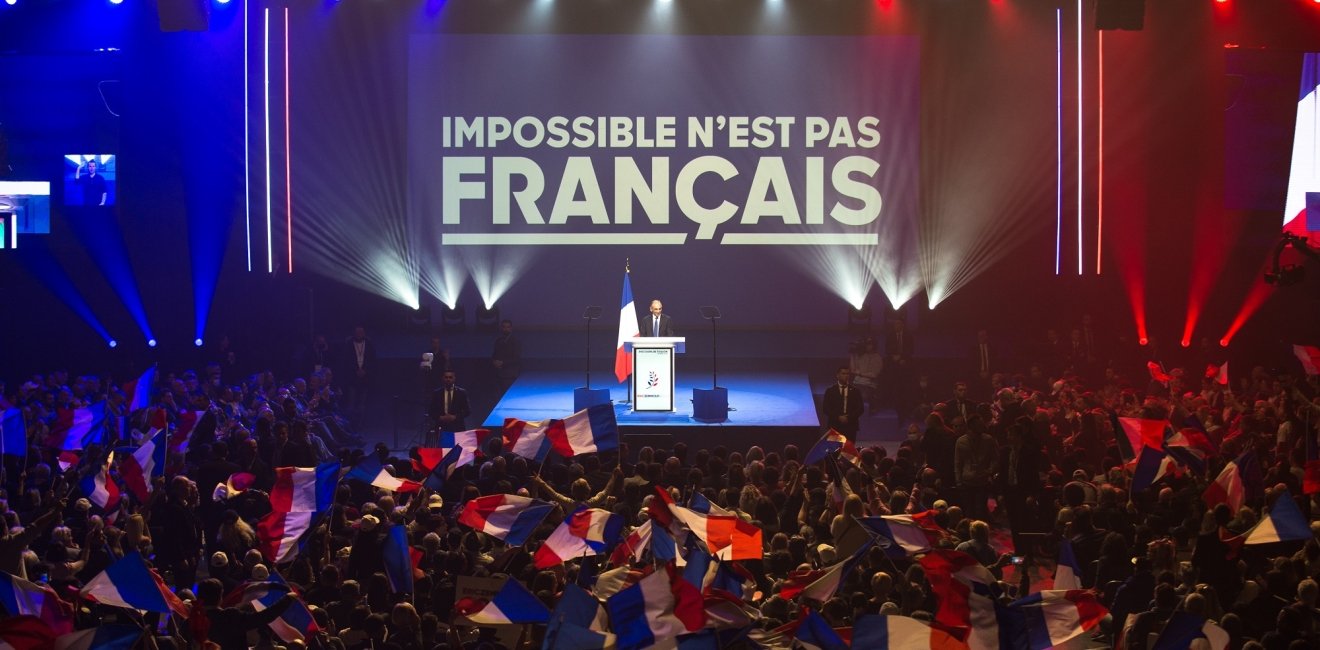The Ukraine crisis has made the French presidential elections appear like a side show, to the detriment of Macron’s opponents, who feel that their campaigns and their “issues” are being overshadowed. The first round of voting will occur on April 10, but public attention is likely to remain focused on the war in Ukraine. This will almost certainly benefit Macron: his role as an international statesman has reinforced his stature and elevated him above the rest. He made huge efforts to avert the conflict and it is not out of the question that he can still provide Putin with a way out of the war. The fact that France holds the presidency of a remarkably activist European Council means that Macron can speak for Europe. Short of yet another unexpected turn of events, Macron will win.
Even without the war Ukraine, the opposition candidates were flailing. Marine Le Pen had been expected to be Macron’s main rival and it was widely assumed that the second round of the election 2022 would be a rematch of 2017. Le Pen strove to mainstream her candidacy, to smooth the rough edges of her persona and to normalize her party. At the same time, France had lurched towards the right on issues like immigration and crime, so her positions seemed to converge with much of the national mood. But this apparent moderation opened her up to an attack from the far right. It came from journalist and television personality Eric Zemmour, whose zeal for taking extreme and polemical positions won over elements of the far right who thought that Le Pen was becoming too centrist—and perhaps too boring. Le Pen appealed to working class voters; Zemmour, to lower middle-class elements, who admired his pseudo-intellectual patina.
Split on the Far Right
Marine Le Pen is the daughter of Jean-Marie Le Pen, who founded the National Front. His political stance was suffused with his hatred of Charles de Gaulle, who had fought against the collaborationist Vichy regime and finally acceded to independence for Algeria. Yet Marine Le Pen went so far as to demonstrate her admiration for the General. Treason! Zemmour, on the other hand, became an apologist for Vichy’s leader, Marshal Pétain. And what could have excited the remnants of the old, hard right more than a Jew defending Vichy’s antisemitic policy? Zemmour also embraced the crackpot theory of “great replacement,” the idea that French elites were sponsoring immigration to turn France into a Muslim country, a spin-off on the old antisemitic theory of the Elders of Zion. Zemmour split the voters of the far right, thereby torpedoing Le Pen’s prospects. He even gained the support of Jean-Marie Le Pen and Marine’s young family rival and niece: Marion Maréchal-Le Pen. Meanwhile, Valerie Pécresse, the lackluster candidate of the center-right, Les Républicains, failed to take hold.
A real left could have stood up against the way anti-immigration rhetoric had become a cover for Islamophobia, but not this left, which seemed focused on its own political suicide. The once governing Socialist Party nominated the mayor of Paris, Anne Hidalgo, whose candidacy never took off. Nor did the ecologist candidate or anyone else on the far left, except for the very polarizing Jean-Luc Mélenchon, who had won around 20% in the first round in 2017 but was scoring half that in recent polls. Mélenchon had one advantage—he alone seemed to sense how many citizens felt they were being crushed by growing inequality—the message of the gilets jaunes. He was the only candidate on the left who had a chance of making it to the second ballot if Zemmour, Le Pen and Pécresse split the votes of the right.
Ukraine further damaged Macron’s unhappy rivals, in particular Zemmour, Le Pen and Mélenchon.
Such was the situation before the Ukraine crisis exploded into war. Ukraine further damaged Macron’s unhappy rivals, in particular Zemmour, Le Pen and Mélenchon. All three had shown a long and cloying admiration for Vladimir Putin and his system. For Zemmour and Le Pen, this affection was based on Putin’s record as a nationalist and reputation as the last great defender of the “White Race;” for Mélenchon, it mostly grew out of his anti-Americanism and dislike of NATO, an attitude that always had some resonance in France. But after the invasion of Ukraine, being a friend of Putin was hardly to their advantage and photographs of them together with Putin were no longer something they wanted to flaunt. And Zemmour did not cover himself in glory—given the mood in France in favor of Ukraine—by expressing opposition to allowing Ukrainian refugees in France.
Given his favorable political situation, Macron has no immediate electoral interest in putting forth a detailed program that might offer his opponents a target or to participate in a debate before the first round of the elections. But as commentators have asked, will that provide him with legitimacy to take on France’s tough social and economic problems during the next five years? Give him cover against a resurgence of the gilets jaunes?
A resounding victory of Macron in April might constitute a coup de grace to the two traditional parties of the Fifth Republic: Socialists and Republicans. But his own movement, La Republique en Marche has failed to turn into a real political party. A new National Assembly will be elected a few months after the presidential elections. What will it look like? Will a majority coalesce? How will Macron govern with the old party system dying and no viable alternatives? Macron should beware of “too much triumph in the victory;” it could come back to haunt him.
Author

Author "Jews, Muslims, and the French Republic" (Cambria: 2023)

Global Europe Program
The Global Europe Program is focused on Europe’s capabilities, and how it engages on critical global issues. We investigate European approaches to critical global issues. We examine Europe’s relations with Russia and Eurasia, China and the Indo-Pacific, the Middle East and Africa. Our initiatives include “Ukraine in Europe”—an examination of what it will take to make Ukraine’s European future a reality. But we also examine the role of NATO, the European Union and the OSCE, Europe’s energy security, transatlantic trade disputes, and challenges to democracy. The Global Europe Program’s staff, scholars-in-residence, and Global Fellows participate in seminars, policy study groups, and international conferences to provide analytical recommendations to policy makers and the media. Read more

Explore More
Browse Insights & Analysis
Greenland’s New Governing Coalition Signals Consensus

The Future of France's Far-Right Party

Ukrainian Issue in Polish Elections

